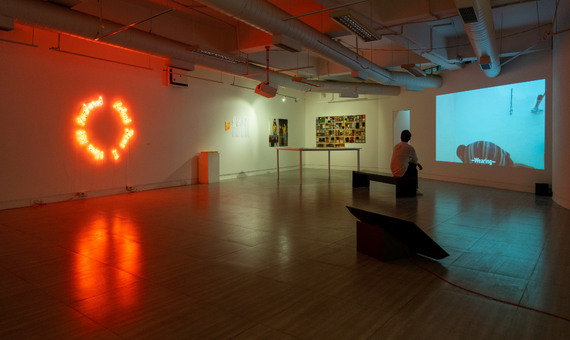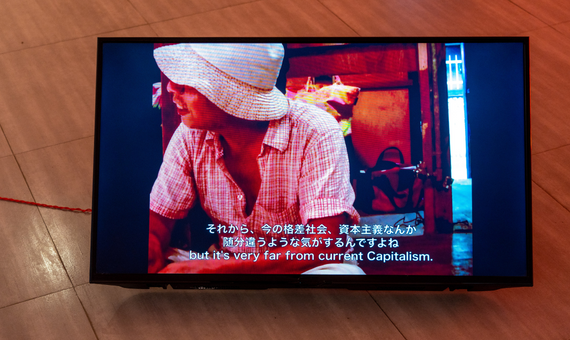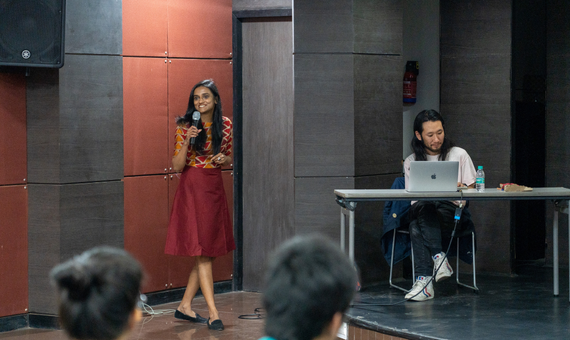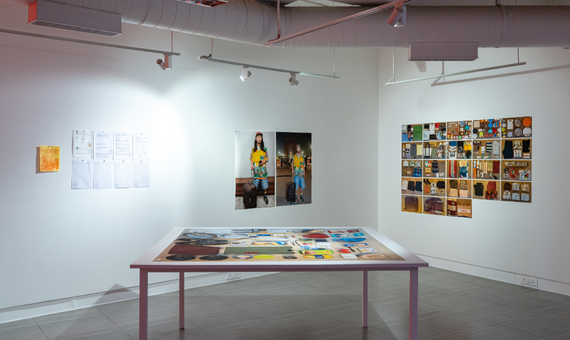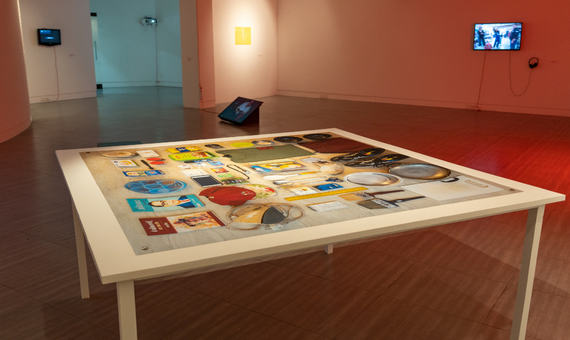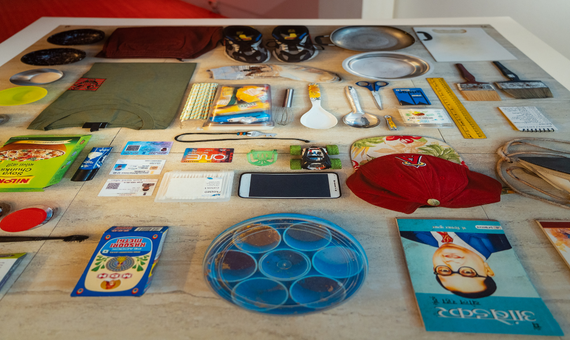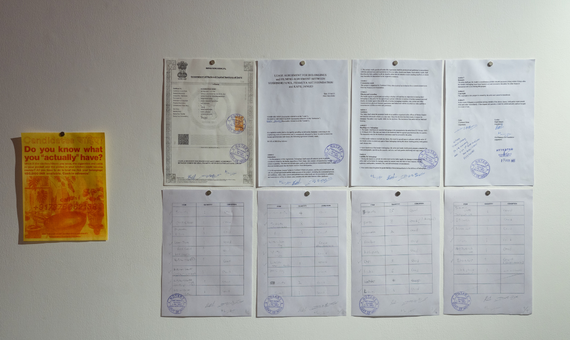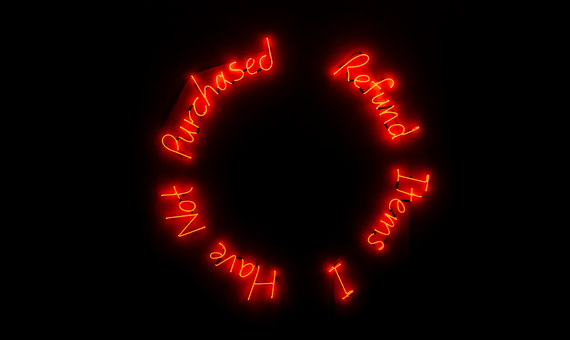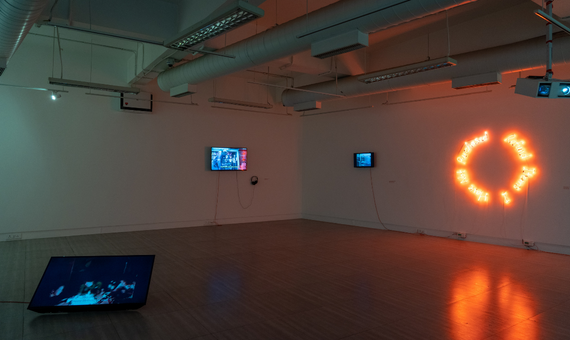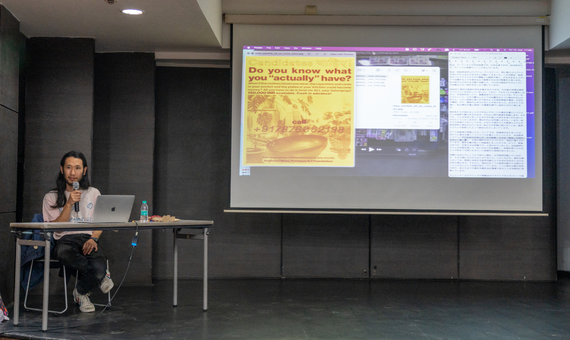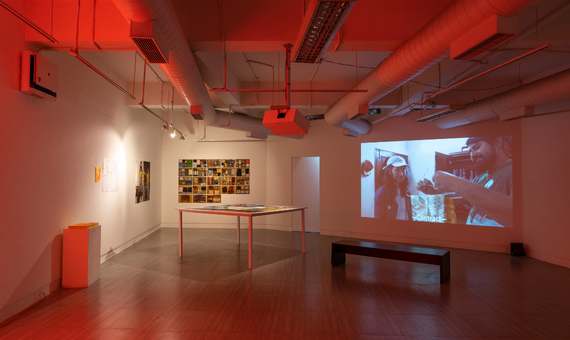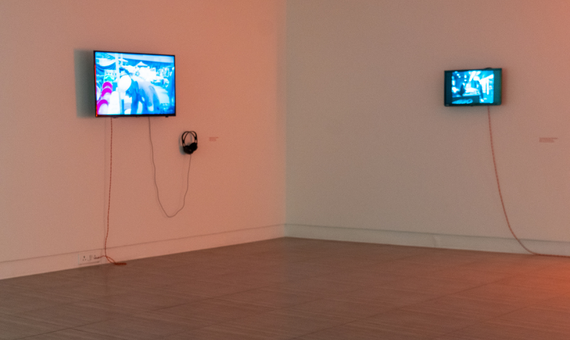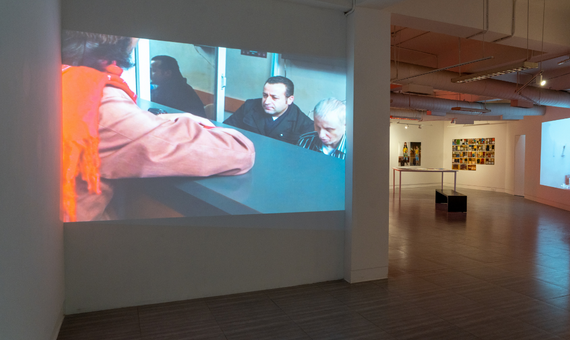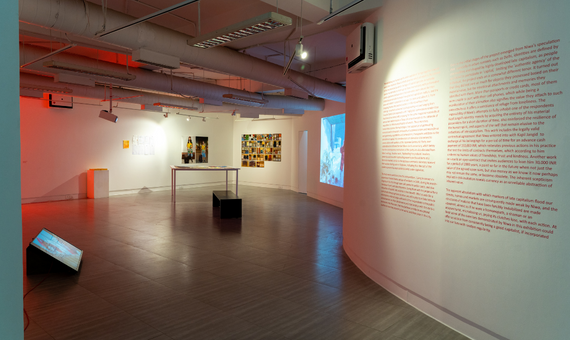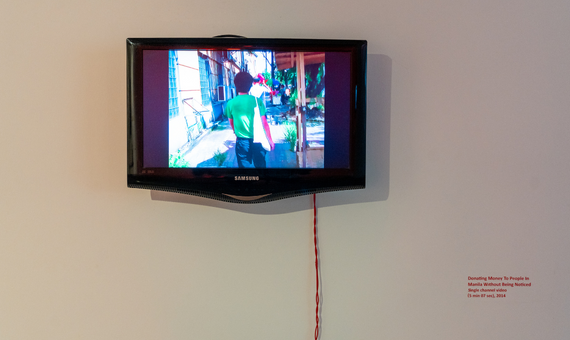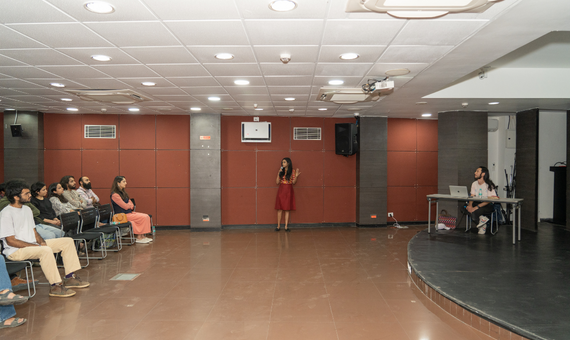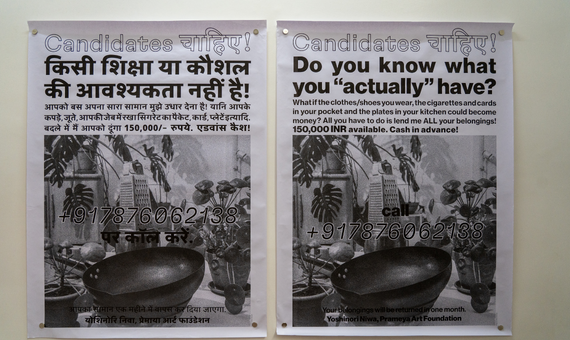Curatorial Statement
‘Rehabilitating our human spirit under capitalism’ brings together several works from Yoshinori Niwa’s artistic practice which all relate to his interest in the mechanisms by which the logic of capital operates in everyday spaces. He attempts to interrupt its flows momentarily with performative actions, gestures, and questions that ostensibly seem absurd for their simplicity but are able to reveal how glitched capitalism really is, and the ease with which it is possible to occupy its cracks and subvert it. From dropping money into people’s pockets in Manila without them noticing—an activity converse to pick-pocketing—to exchanging from Euros to Turkish Lira repeatedly until ‘negligible’ commissions render it so that there is no money left or paying for the same magazine repeatedly at various train station kiosks in Tokyo, all serve reversely to the rationale of aspirations for infinite amplification of wealth. These monetary transactions counter the mythologies that support an all-permeating economic and technocratic philosophy of accelerationism and reconcile us with generosity, equitability and camaraderie, therapeutic antidotes to the alienation of capital. His considerations on alienation also extend to conversations with workers at the Japanese Communist Party, over celebrations he initiated for Karl Marx’s birth anniversary, which betray that the contemporary motivations of the party are also alienated from Marx’s writings. Another work, ‘Applauding the products’ involves passersby and the artist applauding recently purchased items at a Romanian market, similar to the applause communist dictators received from workers during visits to factories, indicating that the cult of the market economy has replaced dictatorship under capitalism.
The most recent work that joins this compendium, ‘Living in someone’s possessions’ invited diverse groups of residents in Delhi, during his month-long stay in the city through open calls pasted in public spaces, and also newspaper inserts and advertisements, luring them with the proposal for a transaction of capital that could be to their benefit. What sounds like a scam despite being a genuine promise, was still a ploy to initiate intimate conversations and exchanges with each of the respondents to the public announcements on their attachments and relationships with the various possessions that they own, that they believe contribute exceptional qualities to how they present to the world, and their place in the city. Even as the initial stages of the project emerged from Niwa’s speculation that especially in urban contexts such as Delhi, identities are defined by commodities and shaped by highly developed late-capitalism, as people are forced to participate in ‘capital’, limiting the ‘authentic agency’ of the individual, the project ends on a somewhat different tenor. It turned out that they did not care as much for objects they possessed based on their material value, but for emotional attachments and memories they identified with them. More than passports or credit cards, most of them were unable to part with their cell phones, which while being a manifestation of their alienation also signifies the value they attach to such connectivity as it offers a semblance of refuge from loneliness. The impossibility of Niwa’s attempts to fully inhabit one of the respondents, Kapil Jangid's identity merely by acquiring the entirety of his material possessions for a short duration of time, also reinforced the resilience of the human spirit, and aspects of the self that remain elusive to the seductions of late capitalism. This work includes the legally valid contractual agreement that Niwa entered into with Kapil Jangid, to exchange all his belongings for a period of time for an advance cash payment of 150,000 INR, which reiterates previous actions in his practice that test the limits of contracts themselves, which according to him undermine human values of friendship, trust and kindness. Another work on view is an open contract that invites audiences to loan him 30,000 INR for a period of 2000 years, a point so far in the future when not just the value of the agreed upon sum, but also money as we know it now perhaps may not remain the same, or become obsolete. The inherent scepticism implied in this invitation reveals currency as an unreliable abstraction of inherent value.
The apparent absolutism with which markers of late capitalism flood our streets, homes and markets are consequently made weak by Niwa, and the structures of malaise that have been forcibly invisibilized are made apparent, almost as if he were a homoeopath, a shaman or an acupuncturist, microdosing us, prying its clutches lose, with each action. At least some of the exercises demonstrated by Niwa in this exhibition could offer us solace from consistently being a good capitalist if incorporated into our lives with random regularity

